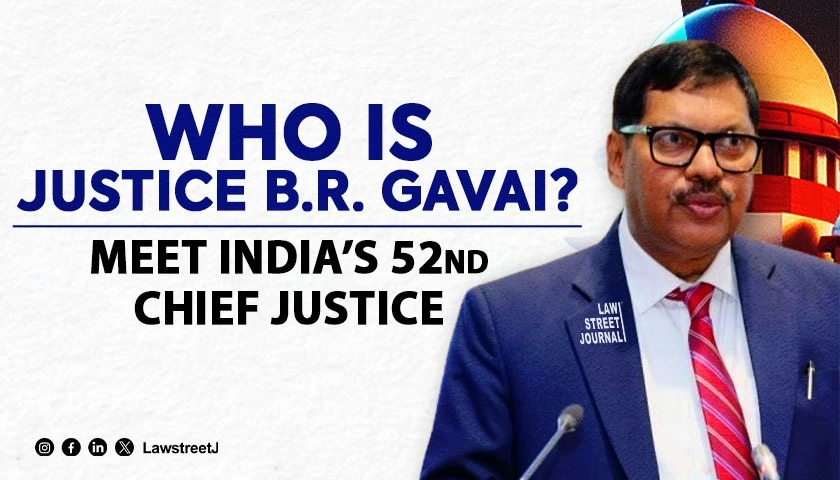New Delhi: Justice Bhushan Ramkrishna Gavai is set to assume office as the 52nd Chief Justice of India on May 14, 2025, following the retirement of Justice Sanjiv Khanna. His appointment marks a significant milestone, as he becomes the only second individual from a Scheduled Caste background to hold this esteemed position, after Justice K.G. Balakrishnan.
Justice BR Gavai’s Early Life and Education
Born on November 24, 1960, in Amravati, Maharashtra, Justice Gavai hails from a family deeply influenced by Dr. B.R. Ambedkar’s ideals. His father, R.S. Gavai, was a prominent Ambedkarite leader, former Member of Parliament, and served as Governor in multiple states. Justice Gavai pursued his Bachelor of Arts and Bachelor of Laws (B.A.LL.B.) degrees from Nagpur University, laying the foundation for his legal career.
Justice BR Gavai’s Legal Career
Justice Gavai enrolled as an advocate on March 16, 1985, and practiced primarily at the Nagpur Bench of the Bombay High Court, focusing on constitutional and administrative law. He served as Assistant Government Pleader and Additional Public Prosecutor from August 1992 to July 1993, and later as Government Pleader and Public Prosecutor for the Nagpur Bench starting January 17, 2000.
Judicial Appointments
He was appointed as an Additional Judge of the Bombay High Court on November 14, 2003, and became a permanent judge on November 12, 2005. Justice Gavai was elevated to the Supreme Court of India on May 24, 2019.
Justice BR Gavai’s Notable Judgments
Throughout his tenure, Justice Gavai has contributed to several landmark judgments:
• Demonetisation Verdict (2023): Authored the majority opinion upholding the 2016 demonetisation scheme, emphasizing its proportionality and reasonableness.
• Electoral Bonds Scheme (2024): Part of the Constitution Bench that struck down the 2018 Electoral Bonds Scheme, highlighting violations of citizens’ right to information and transparency in political funding.
• Bulldozer Demolitions Case (2024): Along with Justice K.V. Viswanathan, held that demolishing properties of accused individuals without due process is unconstitutional.
• Article 370 Abrogation (2023): Part of the five-judge bench that upheld the abrogation of Article 370, supporting the Union government’s decision.
• Sub-classification within SC/ST Categories (2024): Contributed to the majority opinion allowing sub-classification within Scheduled Castes and Scheduled Tribes for reservation purposes.
• Extension of ED Director’s Tenure (2021): Upheld the government’s decision to extend the tenure of the Enforcement Directorate’s Director beyond the stipulated two years.
• Am zon-Future Retail Arbitration (2022): Part of the bench that held an emergency award by a foreign arbitrator is enforceable under Indian law.
• Prashant Bhushan Contempt Case (2020): Part of the bench that fined advocate Prashant Bhushan ₹1 for his tweets criticizing the judiciary, balancing the need to uphold the court’s dignity with the right to free speech.
• Teesta Setalvad Bail Case (2023): Granted bail to human rights activist Teesta Setalvad, criticizing the trial court’s observations as “perverse” and noting that her custodial interrogation was unnecessary.
• Rahul Gandhi Defamation Case (2023): Stayed the conviction of Rahul Gandhi in a defamation case, highlighting that the trial court failed to provide adequate reasons for the maximum sentence, which had led to Gandhi’s disqualification from Parliament.
Justice Gavai’s jurisprudence reflects a steadfast commitment to constitutional principles, social justice, and the rule of law. His upcoming tenure as Chief Justice of India is anticipated to further these ideals.















